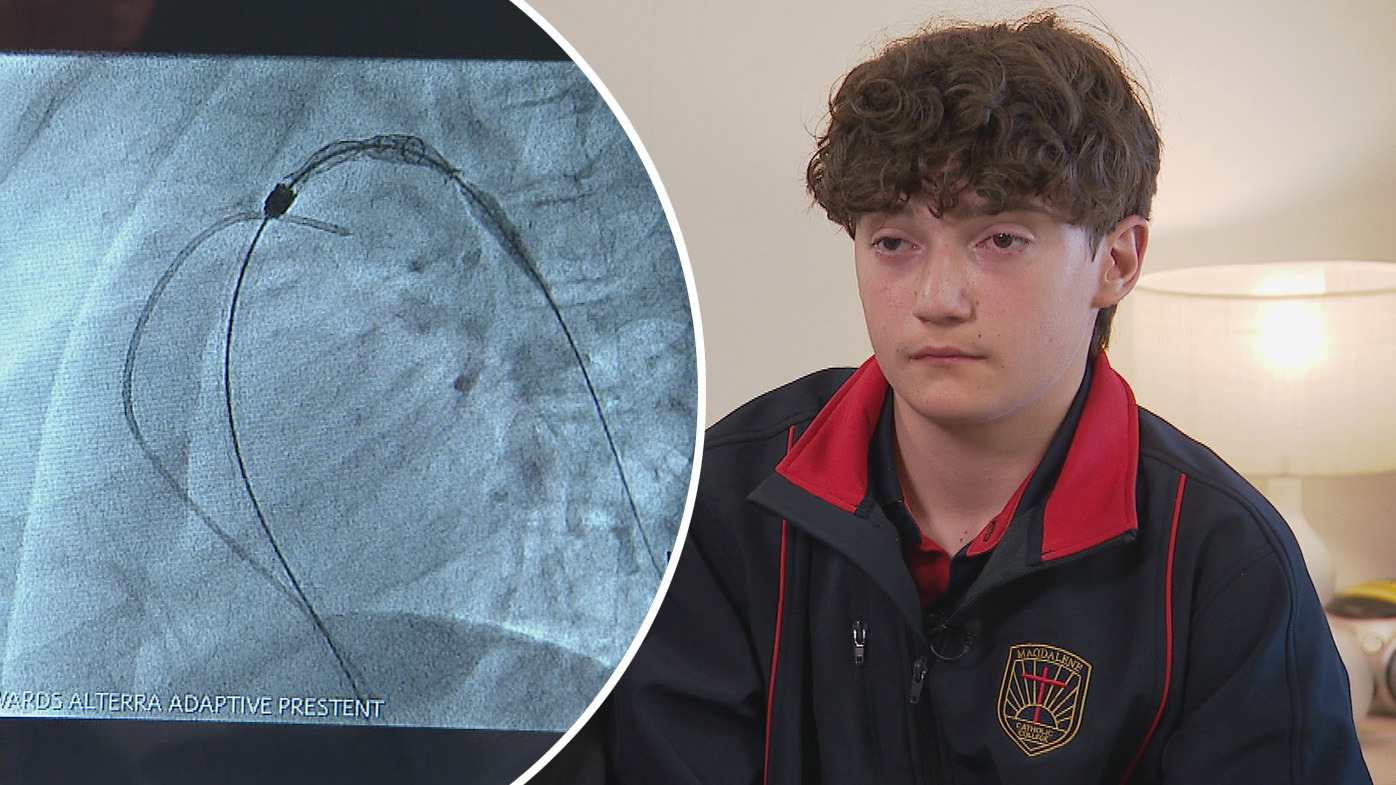
A teenager from Sydney’s south-west has become the first child in the country to receive a new implant that spared him the ordeal of having to go through an invasive open heart operation.
Aurelius was born with a heart defect called tetralogy of Fallot, which caused him to have open heart surgery at 13 weeks old.
“To see him at that age going through open heart surgery, [spending] a long time in hospital, the recovery…as a first-time mum [it was] very confronting,” his mother Kathryn Chrystal said.
READ MORE: Online criminals target young people in ‘sadistic sextortion’ crimes
More recently, doctors at the Children’s Hospital at Westmead needed to fix a complication that caused the 14-year-old to become lethargic and breathless.
The blood flowing from his heart to his lungs was leaking and moving in the wrong direction.
Consequently, he needed a new pulmonary valve to improve the blood flow to his lungs.
However, instead of cutting open his chest and putting him on a bypass machine to receive a new valve, he underwent a minimally invasive procedure.
READ MORE: Three men charged over alleged theft of guns worth $200,000 from NSW museum
A self-expanding stent and valve were inserted through a tiny incision in his groin, and into a vein that travels to his heart.
He was the first child in Australia to receive the new technology which will enable more children with this congenital heart condition to avoid multiple open heart surgeries throughout their lives.
“A life-changing procedure it’s been for us, he’s back to playing soccer, going to school, he was in hospital overnight and then he was released the next day,” Chrystal said.
“We were told this should hold for 10 years, which is amazing.”
READ MORE: Melbourne home ‘thoroughfare for snakes’ amid unseasonably warm weather
Aurelius told 9News he feels “more energised and focused” on “what he can do with his life” after the procedure.
The new technology could boost the number of young eligible patients for the minimally invasive procedure from 30 to 70 per cent, according to Dr Philip Roberts, interventional cardiologist at the Sydney Children’s Hospitals Network.
“It will definitely help to avoid the recurrent need for open heart bypass operations,” Roberts said.
“I think it really does revolutionise the options available to families and patients.”
links to content on ABC
9News





